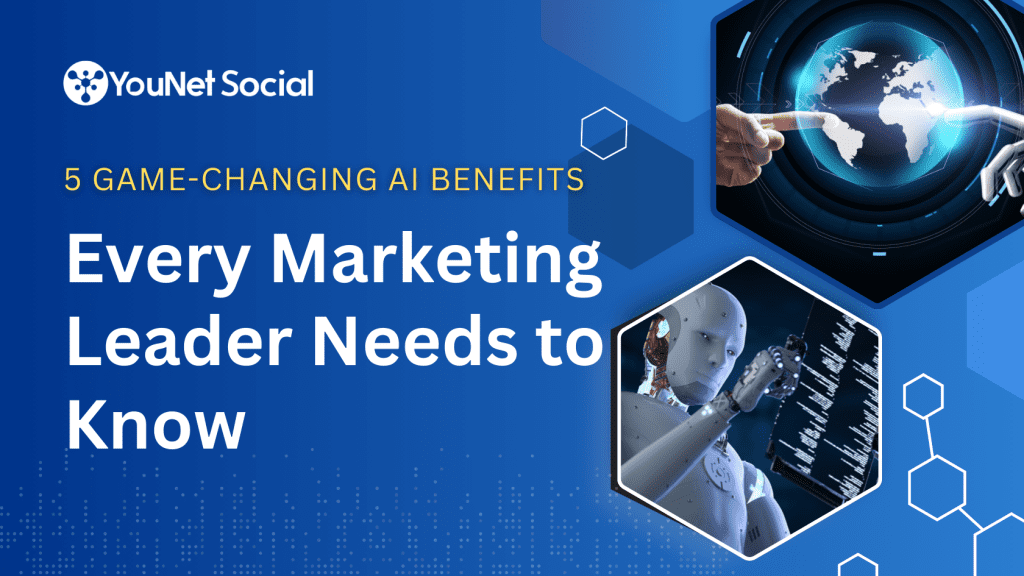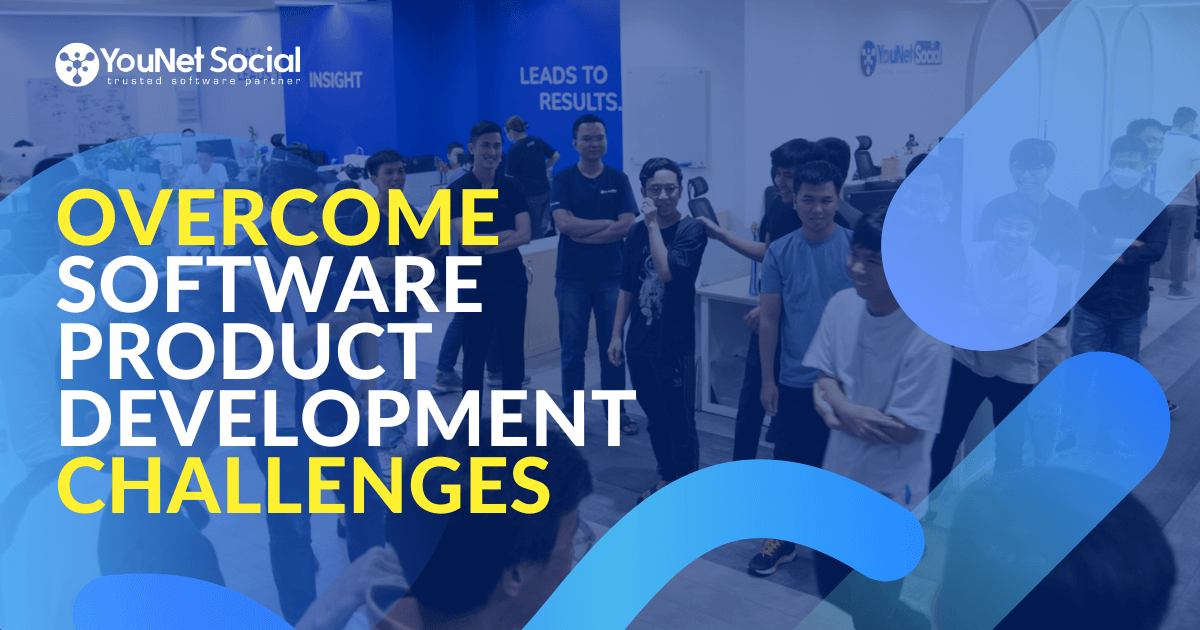

AI Benefits are transforming the way businesses operate—they empower businesses with deep customer insights, predictive analytics, and smarter decision-making. But how exactly does AI drive digital transformation, and why should marketers take notice? Let’s explore five major benefits AI brings to the table.
1. Enhanced Customer Experience (CX) Through AI Personalization:
AI enables marketers to create highly personalized experiences at scale. By analyzing large volumes of customer data, AI identifies patterns and preferences, allowing for precise content delivery, customized recommendations, and seamless customer journeys. In today’s digital landscape, consumers expect personalized interactions at every touchpoint. AI makes this achievable by uncovering insights that would be impossible to detect manually.


AI-powered chatbots and virtual assistants have evolved from simple customer service tools to engagement platforms that drive conversions and foster relationships. Modern conversational AI capabilities include:
- Enhanced Customer Experience: AI Chatbots ensure constant availability, providing instant responses to queries, and enhancing customer satisfaction and engagement.
- Data-Driven Insights: Chatbots gather and analyze extensive customer interaction data, offering valuable insights into preferences, behavior, and pain points, empowering businesses to improve products and services.
- Personalization and Engagement: Advanced AI algorithms empower ChatBots to analyze user data, and tailor interactions for personalized responses that boost customer engagement & retention.
- Continuous Improvement: AI ChatBots learn and enhance using machine learning, refining responses in real-time feedback for greater accuracy and efficiency in future interactions.
- Multi-Channel Support: ChatBots seamlessly operate across multiple channels such as websites, social media platforms, and messaging apps. This omnichannel presence ensures consistent and accessible customer service.
Brands implementing conversational AI report 35% improved customer satisfaction scores and 25% higher conversion rates—proving that well-executed AI engagement strategies create measurable business impact.
2. Marketing Automation & Efficiency
Marketing teams often find themselves stretched thin across multiple channels and initiatives. Time is money, and AI helps marketers maximize both by automating and optimizing repetitive marketing tasks, ensuring efficiency and better results.
Key marketing automation benefits include:
- Streamlined content creation processes through AI writing assistants
- Automated campaign optimization that continuously improves performance
- Intelligent budget allocation that maximizes returns across channels
A recent study found that marketing departments implementing AI automation reduced campaign management time by 40% while improving campaign performance by 25%—creating the bandwidth for strategic thinking while enhancing results.
Below are some AI marketing automation tools businesses can consider:
✅ Email Marketing Automation: AI segments audiences based on behaviors, preferences, and engagement history. It then personalizes email content dynamically, optimizing send times and subject lines to improve open and conversion rates. Imagine sending tailored recommendations to each subscriber without lifting a finger.
✅ Ad Targeting & Optimization: AI-powered tools analyze vast amounts of data in real time to adjust bidding strategies, optimize ad placements, and predict which creatives perform best. This means fewer wasted ad dollars and higher ROI. For example, Google’s AI-driven Performance Max campaigns help advertisers get better conversions by automatically refining targeting strategies.
✅ Social Media Scheduling & Monitoring: AI tools like Hootsuite and Sprout Social analyze engagement patterns, suggest optimal posting times and even generate content ideas. AI-powered chatbots also respond to customer inquiries instantly, keeping brands active 24/7.
With AI managing the execution, marketers can shift their focus to high-level strategy, creativity, and customer engagement—driving greater impact with less effort.
3. Improved Customer Insights & Predictive Analytics


Understanding customers isn’t just about tracking clicks—it’s about predicting their needs before they even realize them. AI dives deep into consumer behavior, turning raw data into actionable insights that help businesses maximize their campaign marketing strategy.
🔍 Predict Purchasing Patterns: AI sifts through past purchases, browsing habits, and interactions to forecast what customers are likely to buy next. This helps brands deliver timely offers, upsells, and cross-sells, increasing revenue. Retailers like Amazon use AI-powered recommendation engines to drive sales by suggesting relevant products to each customer.
🎯 Identify High-Value Leads: Not all leads are created equal. AI analyzes user intent signals and engagement levels to prioritize the most promising prospects, helping sales and marketing teams focus their efforts where they matter most. For example, AI in CRM systems like HubSpot and Salesforce scores lead based on conversion likelihood.
📈 Discover Emerging Market Trends: AI-powered sentiment analysis scans social media, forums, and online reviews to detect shifts in consumer preferences. Marketers can capitalize on these trends early, refining messaging and product offerings accordingly. Brands like Nike use AI-driven insights to anticipate fashion and fitness trends before they go mainstream.
For marketing leaders, AI-driven customer insights mean more precise targeting, higher engagement, and ultimately, stronger revenue growth. Instead of guessing what works, AI helps marketers make data-backed decisions that drive real results.
4. Driving Innovation with AI
AI-powered analytics is transforming businesses by giving them a competitive edge. It’s not just about improving operations or customer experience—it’s about staying ahead through continuous innovation.
With real-time data processing, AI helps businesses quickly adapt to market changes and customer needs. Instead of relying on guesswork, companies can make smarter, data-driven decisions that speed up digital transformation and keep them relevant in today’s fast-moving, data-driven world.
5. Boosting ROI with AI Investment in Digital Transformation
Understanding the return on investment (ROI) of AI is crucial for companies embarking on a digital transformation journey. A comprehensive assessment involves not only evaluating immediate financial gains but also considering long-term strategic advantages. For instance, comparing traditional IT investments with AI-driven initiatives reveals significant differences in outcomes.
According to a study by McKinsey, companies that have integrated AI into their operations have seen revenue growth of up to 20% compared to those that haven’t, which reported modest gains or even declines.
Moreover, in industries like retail and banking, AI applications in customer service and fraud detection have significantly improved customer experiences while reducing operational costs by up to 25%. These numbers highlight the critical role AI plays in driving digital transformation.
The Future of AI in Marketing
AI is changing the game for marketers, making campaigns smarter, more personalized, and more efficient. Brands that use AI effectively aren’t just adding new tools—they’re completely rethinking how they connect with customers.
The most successful companies are blending human creativity with AI-powered insights to create marketing that truly resonates. From predicting customer behavior to delivering ultra-personalized experiences, AI is helping businesses stay ahead.
Are you making the most of AI in your marketing? Now’s the time to dive in—before your competitors do!
At YouNet Social, we help brands leverage cutting-edge AI Chatbot Solutions to transform their digital marketing strategies. Contact us today to learn how our solutions can drive your business forward.




